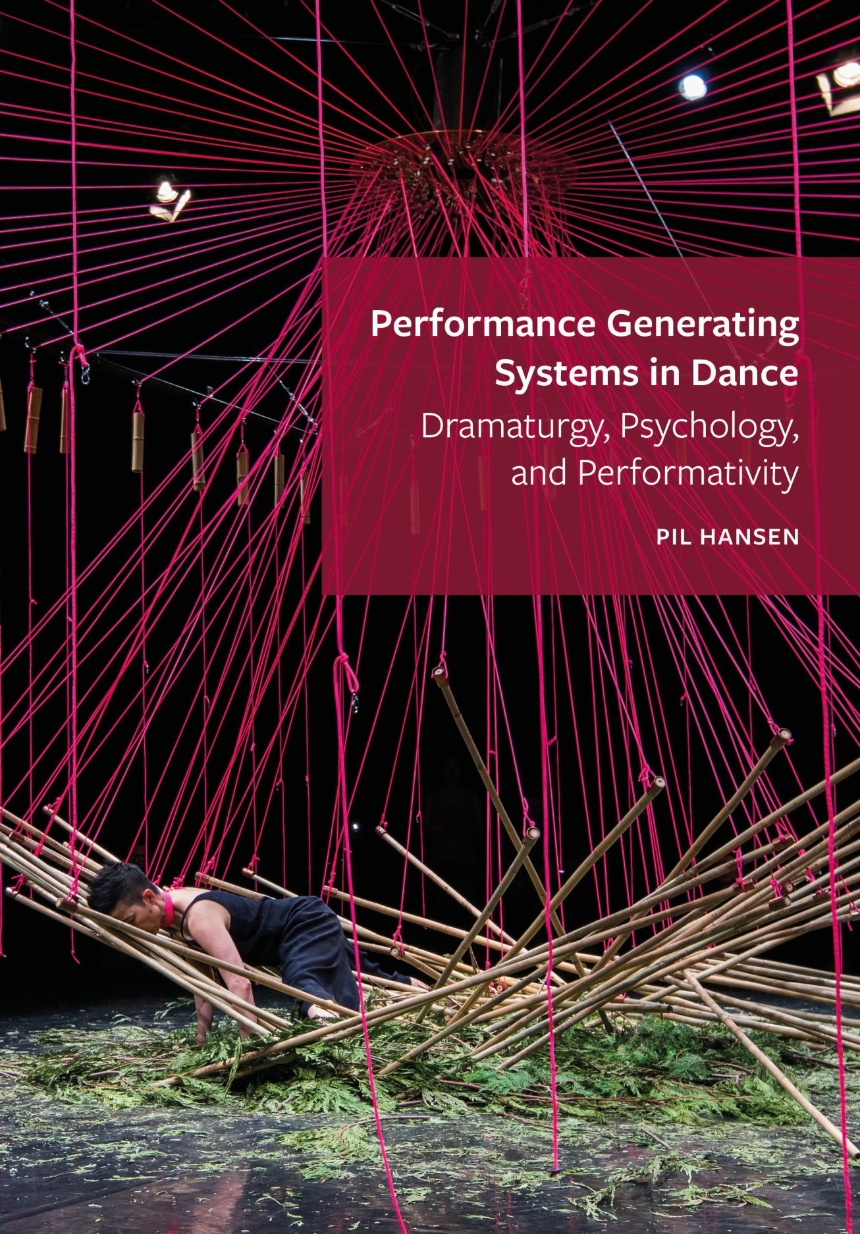9781789388763
9781789386400
Distributed for Intellect Ltd
Performance Generating Systems in Dance
Dramaturgy, Psychology, and Performativity
An interdisciplinary analysis of how performance-generating systems attract patterns of movement and why that affects dramaturgical agency, cognitive learning, and relational change.
Performance-generating systems are systematic and task-based dramaturgy that generate performance for or with an audience. In dance, such systems differ in ways that matter from more closed choreographed scores and more open forms of structured improvisation. Dancers performing within these systems draw on predefined and limited sources while working on specific tasks within constraining rules. The generating components of the systems provide boundaries that enable the performance to self-organize into iteratively shifting patterns instead of becoming repetitive or chaotic.
This book identifies the generating components and dynamics of these works and the kinds of dramaturgical agency they enable. It explains how the systems of these creations affect the perception, cognition, and learning of dancers and why that is a central part of how they work. It also examines how the combined dramaturgical and psychological effects of the systems performatively address individual and social conditions of trauma that otherwise tend to remain unchangeable and negatively impact the human capacity to learn, relate, and adapt. The book provides analytical frameworks and practical insights for those who wish to study or apply performance-generating systems in dance within the fields of choreography and dance dramaturgy, dance education, community dance, or dance psychology.
Performance-generating systems are systematic and task-based dramaturgy that generate performance for or with an audience. In dance, such systems differ in ways that matter from more closed choreographed scores and more open forms of structured improvisation. Dancers performing within these systems draw on predefined and limited sources while working on specific tasks within constraining rules. The generating components of the systems provide boundaries that enable the performance to self-organize into iteratively shifting patterns instead of becoming repetitive or chaotic.
This book identifies the generating components and dynamics of these works and the kinds of dramaturgical agency they enable. It explains how the systems of these creations affect the perception, cognition, and learning of dancers and why that is a central part of how they work. It also examines how the combined dramaturgical and psychological effects of the systems performatively address individual and social conditions of trauma that otherwise tend to remain unchangeable and negatively impact the human capacity to learn, relate, and adapt. The book provides analytical frameworks and practical insights for those who wish to study or apply performance-generating systems in dance within the fields of choreography and dance dramaturgy, dance education, community dance, or dance psychology.
Reviews
Table of Contents
Introduction: Performance Generating Systems in Dance
Part One Dramaturgy
1.The Dramaturgical Agency of Performance Generating Systems
2.Analyzing and Notating Performance Generating Dramaturgies as Dynamical Systems
3.Recycled Choreographic Memory in relay: Henderson
Part Two Psychology
4.The Cognitive Demands and Learning Effects of Performance Generating Systems
5.Learning in Whole in the Head: Forsythe
6.Unlearning in I’ll Crane for You: Hay through House
Part Three Performativity
7.Affecting the (im)possibility of Change: Performativity and Trauma
8.Transition from Dissociation to Intimacy in Crave: Kaeja
9.Environmental Entanglement in Dance Machine: Lee
Conclusion: Affecting Agency, Learning, and Change through Performance
Appendix: Methodological Negotiations
Index
Part One Dramaturgy
1.The Dramaturgical Agency of Performance Generating Systems
2.Analyzing and Notating Performance Generating Dramaturgies as Dynamical Systems
3.Recycled Choreographic Memory in relay: Henderson
Part Two Psychology
4.The Cognitive Demands and Learning Effects of Performance Generating Systems
5.Learning in Whole in the Head: Forsythe
6.Unlearning in I’ll Crane for You: Hay through House
Part Three Performativity
7.Affecting the (im)possibility of Change: Performativity and Trauma
8.Transition from Dissociation to Intimacy in Crave: Kaeja
9.Environmental Entanglement in Dance Machine: Lee
Conclusion: Affecting Agency, Learning, and Change through Performance
Appendix: Methodological Negotiations
Index

